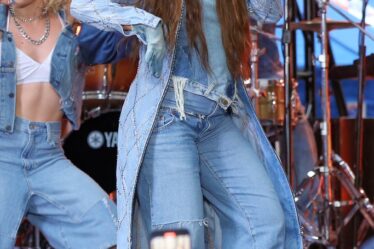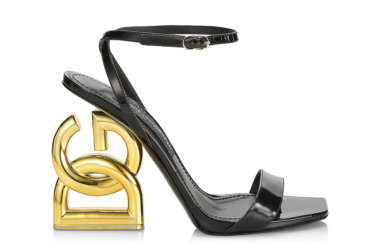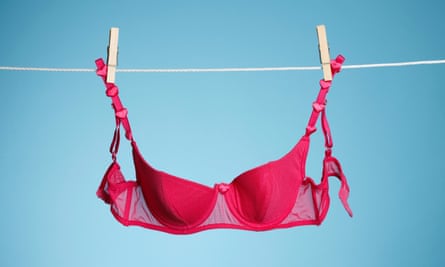
There are some great reasons to wash your clothes less frequently – they’ll last longer, it’s good for the environment, using a washing machine can be expensive – but the main appeal to my mind is that, if you do less laundry, you’ll spend less time doing laundry. It’s supernaturally boring, like a task devised by Rumpelstiltskin.
Before getting into the practicals of joining the no-wash movement, try a bit of brain rewiring. “What’s your stress test for washing clothes?” asks Richard Blackburn, professor of sustainable materials at Leeds University. “Do you smell it? Do you look at it? Or do you just wash it habitually?” He then points out that the fabric that has most contact with your body is your bedding, and you wouldn’t dream of washing it after every use.
Orsola de Castro, fashion designer and author of Loved Clothes Last, says (quite sternly) “the washing machine is not an extension of your wardrobe. It has a function, which is to alleviate the pain of washing by making it easier, but more frequent is not the point.”
Meanwhile, NJ Stevenson, fashion historian and curator, considers as a thought experiment: what did people do when they didn’t have washing machines or dry cleaning facilities? “They’d have one good wool suit, which would be spot cleaned and aired; it would never be washed.”
How long is it acceptable to wear something without washing it?
This will depend not only on the fabric and the season, but on how you comported yourself in the garment. “Did I fall asleep blind drunk having smoked last night?” De Castro asks rhetorically. “For me, it goes a little deeper than just talking about washing. If you think about our relationship with clothing and how we’ve removed ourselves from any kind of emotional attachment, that leads to the way we care for our clothes, like ‘boom. Shove it in the machine’. I treat my clothes as I treat the food in my fridge – with some understanding of what it needs, and the way it links to my body. I call clothes my chosen skin.”
Also, think about how dirty you are, underneath your clothes: “We wash ourselves so much anyway,” Blackburn says. “Most people shower or bathe once a day. Most of us do occupations where, frankly, we don’t really perspire. We don’t get dirty, and it’s not good to be uber clean. We live with this nice microbiome of bacteria on our skin, which helps you to have good skin.”
Is it ever acceptable to wear underwear more than once without washing it?
Blackburn says he’ll happily wear socks more than once, and has been known to wear pants twice if on the first day, he didn’t get the full 18-hours’ use out of them. Say he got up late, or took them off early because, I don’t know, something else happened. For De Castro: “I have been known to spot clean underwear if it looks OK, rather than put it in the machine.” She will frequently hand-wash underwear while she’s having a shower, which requires minimal effort.
Stevenson sketches the change in function of underwear – before washing machines, “women would always wear a slip or a bodice, and men would always wear a vest. There was an element of formality, it wasn’t done to see the bits that you’re not supposed to see, but it was also to soak up sweat.” So there’s always been a sense that underwear is doing the heavy-lifting, body-odour wise, and has to be washed often to protect the outerwear. But ask yourself, per Blackburn, how heavy that lifting is, in your pampered life.
Some people never wash their bras – is this advisable?
It is commonly agreed that “never” is pushing it, but “I definitely wash my bras less often than pants, because they get less dirty”, De Castro says. Underwired bras last longer the less often you wash them, because of the complexity of the structure and the fragility of the wire, but De Castro would like to “debunk the myth of luxury as the be-all and end-all. My La Perla bra lasted way less time than my Victoria’s Secret one.”
Should you ever wear gym clothes more than once?
Some expert discord, here, on the very concept of athleisure: De Castro calls it “the biggest oxymoron in the history of clothes – these are the clothes we wear supposedly to be fit, to be in touch with our bodies and with nature. They’re made of Lycra and polyester. It means that every time you wear them, every time you sweat and breathe heavily, you’re breathing in plastics. I would only wear cotton, and I would only wash it after vigorous sweating.”
Blackburn has nothing against polyester, on the contrary, he approves of its ability to wick away sweat, and has this ingenious top-rotation strategy: “If I go running in a polyester top, particularly at this time of year, that definitely needs washing. But if I go to yoga – I’m not doing hot yoga – that same top will be absolutely fine afterwards. So I’ll wear that to yoga first, then get two workouts for one wash.”
Which fabrics need the least washing?
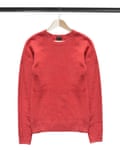
Stevenson would never put wool in the washing machine: “It just damages the fibres. Lots of vintage fabric, you would hand-wash. Viscose-mix pre-1980s can be difficult. Silk can be OK, but generally I wouldn’t put it in the machine, because it goes crispy.” Once you’re in hand-washing territory, you’ll naturally wash garments less because it’s a pain in the arse.
Wool “is amazing at managing our heat”, Blackburn says. “It has natural self-cleaning properties, and doesn’t hold odour. In processing it, we do remove some natural oils, but fundamentally, it’s designed in nature not to have a smell because a smell attracts pests.”
“Polyester was designed with a purpose,” De Castro says, “and its purpose was easy care. It’s meant to be very easy to clean, and because of that, we tend to throw it in the machine without thinking. But it’s very easy to spot-clean.”
At the same time, all hydrophobic materials – nylons – will be “more likely to attract odour molecules”, Blackburn says, whereas cotton tends not to pick up your smell. Once anything smells, you pretty much do have to wash it. Unless …
Can airing clothes outside help to keep them smelling fresh?
“The reason you can smell the molecule is because it’s volatile,” Blackburn says. “It’s effectively evaporating, you could not smell something if it wasn’t vaporised. The best way to get something to vaporise very quickly is to stick it outside, let some wind move it. Even in a room where you’ve got wind moving through, that will work.”
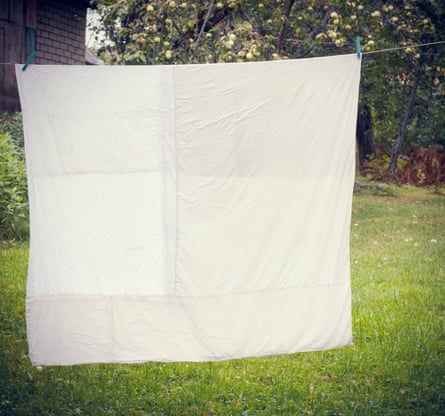
De Castro both airs and sunbathes her textiles, particularly throws, cushions, and duvets. A dress that smells like last night, she will hang in the bathroom while taking a shower, and use essential oils (on herself, not the clothes), “so it gets the steam and the smell of the shower, but not the water”.
“People don’t really have airing cupboards any more,” says Stevenson. “I tend to hang things in our downstairs loo, where the boiler is, in the winter, and that will air it.”
Even with all this science and all this testimony, I still didn’t believe it until I tried it – I hung two dresses, both a viscose mix, outside in this baking weather, and stone me if they didn’t end the day smelling like they’d been dry cleaned.
Won’t dirty clothes attract moths?
“I have long given up,” De Castro says. “I tend to keep my knitwear quite dirty, and it gets attacked by moths. My husband is pernickety and keeps his in plastic, and it gets attacked by moths.” She says that she is a “biodesigner,” who co-designs with moths: “I can live with holes. I love holes,” she says. “One of the most beautiful pieces of art I’ve ever seen was someone who took a table cloth and embroidered every single stain – egg, wine, whatever, rendered beautiful by this creative act of embroidering over it.”
However, if you do not love holes, here are some tips which do not involve more washing. According to De Castro – a suggestion passed on from a vintage reseller in Italy – you should put a decoy in your wardrobe, something moths will love. If you find the right garment, apparently they will stick with that and leave your other knitwear alone. She uses a camel hair jumper. Also, move your clothes often; take your knitwear out regularly, shake it all and refold it.
“Moths are only attracted to protein, because they want to eat it,” Blackburn says. So that’s wool and silk, basically – they’re not even interested in cotton. Stevenson says the older your house, the worse the moth problem will be. She’s now in a postwar house and hasn’t seen a moth for ages. It would be drastic to actually move house.
Is it OK to wash your clothes on a short 30 degree cycle if you’re only washing them very occasionally? Or will you need to opt for a long, hot wash when you do finally chuck your stuff in the machine?
“I had interesting advice from somebody who worked with washing machines,” De Castro says, “which was, always use the lowest possible temperature, and then every two months, do a 95, for all the things that need it.”

Blackburn is a massive fan of detergent. “I’ve always washed on short cycles, because these days, if you buy the right product, you don’t need a long cycle and you can wash at 30 degrees and know your clothes will be clean. People are cynical, and think the promises are just marketing. But they spend a hell of a lot of money patenting detergent because the tech is so valuable.”
Can you wash clothes less in winter as you generally sweat less?
Obviously, doofus. Although Blackburn points out that if you’re working in an air-conditioned office, you’re effectively living in a mild winter most of the time.
What happens if I get a blob of something on my T-shirt? Can I spot-wash instead? And what is the best way to do this?
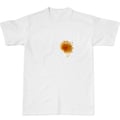
De Castro says: “Some stains you can brush clean, and the abrasive element of the towel gets rid of it – I’m thinking mud, egg, things that aren’t necessarily unctuous. Then finish it off with a bit of humidity. Some stains need a bit of wet, and some, like oil, need detergent.”
Blackburn doesn’t sound like a man who spills very much, which he admits: “I have a background in chemistry, you get very good at pouring things.” But now he has a baby. “I often go to work and I’ll look at my jeans, and think: ‘Where’s that handprint in spaghetti bolognese come from?’ Often it just rubs off though.”
“When you rub, look at the weave of the fabric and rub in that direction,” says De Castro. “You’ll see the material sag a little bit if you do it in the opposite direction.”
For a wet spot-clean, according to Stevenson, “take a clean cloth, generally I use a tea towel, dampen it a bit. I find the very best thing for spot washing is Fairy Liquid. Get a little blob of it, rub it together to take away the greenness, and then just dab the fabric very gently.”
The cardinal rule with stains is to attack them immediately; De Castro keeps a little sponge in her handbag.


